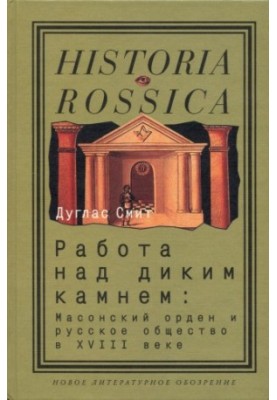Work on the wild stone. Masonic order and Russian society in the XVIII century
 Instant download
Instant download
after payment (24/7)
 Wide range of formats
Wide range of formats
(for all gadgets)
 Full book
Full book
(including for Apple and Android)
Masons in 18th-century Russia were for the most part neither seekers of higher truth nor planners of political reconstruction. Joining the Masonic Lodge was a way of individual social self-affirmation. The free mason felt himself a member of an elite alliance of the elect an aristocracy of spirit called by its moral example to bring order to amorphous Russian society. This concept is justified by the American historian Douglas Smith in the comparative context of the pan-European history of Freemasonry. The study draws on a variety of sources, including preserved in the archives of the original documents of the Russian Masonic lodges. The book shows the relationship between the ritual side of Freemasonry and people's ideas about their place in a changing society, studied the motives and manifestations of Masonophobia. The author's conclusions provide an incentive to rethink the relationship between the autocratic monarchy and its subjects in Russia during the Enlightenment.
LF/897456384/R
Data sheet
- Name of the Author
- Дуглас Смит
- Language
- Russian
- Series
- Historia Rossica
- ISBN
- 9785867934781
- Release date
- 2006














